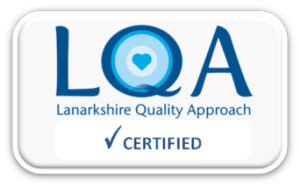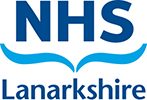Support following the loss of your baby
Information for patients
NHS Lanarkshire Maternity Department
PIL.SLBABY.20_12229.W
You will use this strength to demand of yourself and others your need to grieve completely, for this will be your first step to healing.
During your time of grief you may find help from others who may offer wisdom and comfort. You may begin to understand that your emotions as well as your physical body need healing.
You will learn to accept that you may never feel the same again or heal completely and you will learn to once again see beauty in your world and purpose in your existence.
You will learn to let go of your fear.
You will help yourself to feel comfort in the knowledge that your baby will forever live in your heart and your memory.
Common Questions Asked
Q. Why did I lose my baby?
A. Sometimes we don’t know why you have lost your baby, each individual case is different. Your consultant and midwife will talk to you about your circumstances, and any blood tests or investigations that may be required.
Q. Could anything I did have caused it?
A. Usually not. Most women experience a feeling of guilt after the loss of a pregnancy, thinking of some event, which they feel, could have caused it to happen. Please discuss your feelings with your midwife and consultant at any time.
Q. What sex was my baby?
A. We can usually tell you this if you lost your baby after18 weeks of pregnancy.
Q. How long will I bleed?
A. The bleeding should gradually decrease over the first seven to ten days, and then stop. If you continue to bleed or if bleeding becomes heavier then you should contact your doctor. Your periods will normally return within four to six weeks but this can vary depending on your normal cycle.
Q. Will my baby have a post mortem?
A. This is entirely your decision. You will be given an information leaflet about post mortem to help with your decision.
Q. Why are my breasts sore?
A. If you deliver your baby after fourteen weeks of pregnancy then you may produce some breast milk. Taking a mild painkiller such as Paracetamol and wearing a good supporting bra helps and the feeling usually eases in a few days. You may be offered some medication whilst in hospital to help decrease milk production.
Q. How soon can we try for another baby?
A. You can produce an egg (ovulate) at any time after a miscarriage therefore if you have unprotected intercourse you could conceive.
However, we would normally advise you to wait until you have had at least two normal periods before trying for another baby.
This allows you some time to recover both physically and emotionally.
You may resume intercourse before this if you wish (usually after about two weeks) but you may not be really interested in sexual activity yet and this is quite normal.
If you wish to try for another baby as soon as you feel able then it is wise to use a barrier method of contraception (sheath or cap) until then as they do not interfere with your normal fertility. If you used a cap previously then this may need to be refitted.
Immediate Feelings
When your body went into labour, you probably felt both frightened and helpless, as this would have been out of your control.
Now you will possibly be experiencing a variety of emotions, such as anger, sadness, disbelief and guilt. These are all normal feelings and are a result of needing to grieve for the baby that you have lost.
It is important for you to express your feelings and not to bottle them up. It helps if you can share them with your partner as they are also likely to be upset, not only about the baby but also for the distress you have experienced.
Relatives and Friends
Most people find another person’s loss and grief difficult to cope with. As a result they may avoid the subject for fear of either saying the wrong thing or of reminding you about it. Many women find this avoidance very hurtful. You may need to help relatives and friends cope with the situation by taking the initiative and talking openly to them about what has happened and how you are feeling.
Children
If you have other children, they may be worrying about what has happened to you and why you have been in hospital. They may be blaming themselves. It is important to take time and talk with them about what has happened and each other’s feelings.
Creating Memories
When someone close to us dies, we have our memories of that person to help us with our grief.
Losing a baby usually means that you have no memories of your baby as an individual which can make it difficult for you to understand and cope with your grief. It is possible to try and create memories and you may wish to consider one or all of the following ways.
Photographs/Foot prints
Photographs, videos and where possible, hand and foot prints will be taken of your baby.
Even if you do not wish to have these at present, they will be kept safe should you change your mind in the future.
Private Time with Baby
Your midwife will help you to see and hold your baby. Your baby can stay with you in the room for as long as you wish after delivery.
The Ohana Suite is also available for you to spend time with your baby away from the Labour Ward. This is a large room where extended family and friends are welcome to visit to see and hold your baby if this is your choice.
Spiritual Care and Wellbeing
We have a Spiritual Care and Wellbeing team in the hospital who can offer support to you and your family at this time.
They can perform a naming ceremony or blessing and help with funeral arrangements.
Pre-Viable Certificate
If you gave birth to your baby below 24 weeks of pregnancy one of these can be completed by your midwife for you to take home with you if you wish.
They have no legal status but can help to provide you with a lasting reminder of your baby’s existence.
Certification and Registration
When a baby is born after 24 weeks of pregnancy the stillbirth must be registered prior to the funeral, and certain certification obtained. Your midwife will discuss the procedure with you and give you an information leaflet to take home with you.
Book of Remembrance
You might like to make an entry in the Book of Remembrance which is kept in the Quiet Room in the Maternity Unit.
Please feel free to ask any member of staff if you would like to see the book before making your decision. An entry can be made no matter how early in pregnancy you miscarried.
Annual Memorial Service
We at University Hospital Wishaw hold a Memorial Service annually for parents following a pregnancy loss.
If you would like further information, please contact any member of staff in the maternity unit.
Funeral Arrangements
After delivery, you will be asked what arrangements you wish for your baby. You might like to place your baby in the hands of your own undertaker who will arrange a private cremation or burial. (A private burial can incur costs).
If you wish, University Hospital Wishaw can arrange for your baby to have a cremation or burial and as with the private arrangements, you can be completely involved.
Further information is available in the leaflet ‘Options and Choices for Burial and Cremation Following Miscarriage, Stillbirth or Neonatal Death’ which your Midwife will supply you with.
Funeral Directors
The hospital has dedicated funeral directors which assist with hospital burials and cremations. Please ask a member of staff if you would like contact details.
If you wish to organise your own funeral privately please ensure the hospital has your funeral directors contact details.
Pre-Conception Care
As we mentioned earlier in the leaflet you are normally advised to wait until you have had at least two normal periods before trying for another baby.
Nearly all women who have lost a baby are desperate to become pregnant again and this waiting can cause a build-up of tension and a feeling that the time is being wasted. One way of making the time more bearable is to concentrate on becoming as fit and healthy as possible. Not just the mother, the father is equally important.
There is evidence to suggest that a couple’s way of life (the things they do, the food they eat) can have an important influence on their baby’s health, even before he or she is conceived.
It is advised that all women who are planning a pregnancy should take Folic Acid as a daily medical or food supplement from when they plan to have a baby until the twelfth week of pregnancy.
It is natural that when you become pregnant again that you will feel anxious. You should visit your midwife as soon as you suspect that you are pregnant so that you can be referred early for ante-natal care. Any appropriate investigations can then be offered such as scans. This can help to ease some of the fears you may have.
We hope this leaflet has been of help to you.
If you wish to talk further, either now or in the future, then please speak to your midwife (contact name inside front page). You may also find it helpful to talk to others who have had a similar experience.
Support available
These are some of the services that might be able to help you now or in the future:
- The Bereavement Specialist Midwife will provide ongoing support throughout the first year following the loss of your baby and can help answer questions that you have about the treatment and care you have experienced. Tel No: 01698361100 extension 5732. There is an answering service if she is unable to take your call.
- Spiritual Care and Wellbeing Team
This is a 24 hour on-call service and can be contacted via University Hospital Wishaw switchboard on Tel No: 01698361100. - Maternity Triage
If you have any concerns about your physical wellbeing following discharge from the hospital you can contact Tel No: 01698366210.
Further advice and support is offered by:
- Sands – Telephone: 0808 164 3332, Email: lanarkshire@sands.org.uk
- Simba – Website: www.simbacharity.org.uk, Email: glasgowsimbacharity@gmail.com
- Miscarriage Association – Telephone: 01924 200799, Website: www.miscarriageassociation.org.uk
- Twins & Multiple Birth Association – Website: www.tamba.org.uk/bereavement
- Muslim Bereavement Support – Telephone: 0203 468 7333, Email: info@mbss.org.uk
- Tommys – Telephone: 0800 0147800, Website: www.tommys.org
- Antenatal Results and Choices: Telephone: 0845 0772290, Website: www.arc-uk.org
- Child Bereavement UK: Telephone: 0800 028 8840, Email: glasgowsupport@childbereavementuk.org
- The Lullaby Trust: Telephone: 0808 802 6868, Email: support@lullabytrust.org.uk
- Cruse Bereavement Care Scotland: Website: http://www.crusescotland.org.uk/
- Baby Loss Retreat: Telephone: 07868 557343, Website: www.babylossretreat.org.uk

Review date: July 2024
Issue No: 02
Reference: PIL.SLBABY.20_12229.W
22_12744
If you need this information in another language or format, please e-mail:




